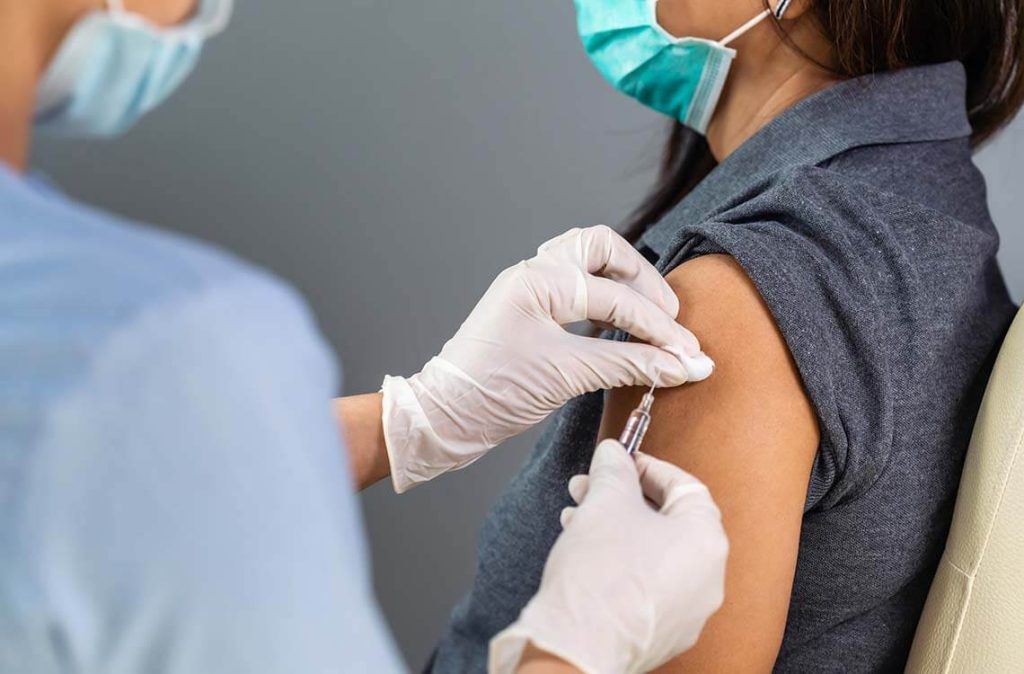The World Health Organization (WHO) estimates that there are more than 200 different types of infectious diseases that affect people globally. Many of which are still active and rampant.
These include viral, bacterial, parasitic, and fungal infections, as well as emerging and re-emerging diseases such as COVID-19, Ebola, and Zika virus.
In summary, there are no shortages of germs and superbugs that can make you regret ever stepping foot outside the country.
Unlike Malaysia, many countries have not had much luck controlling or even reducing their viral outbreaks.
Therefore, it’s important to make sure you’re up-to-date on your vaccines before you travel to a foreign country. Here are some common travel vaccines you may need to take when traveling.
7 Travel Vaccines to take If You’re Leaving the Country
Hepatitis A
Hepatitis A is a viral infection. It spreads through contaminated food or water. This vaccine is recommended for travellers going to countries and regions with poor sanitation and hygiene.
Symptoms of hepatitis A infection include fatigue, nausea, vomiting, abdominal pain, dark urine, joint pain, jaundice (yellowing of the skin and eyes).
High risk countries include Asia, Africa, Central and South America, and the Middle East.
Typhoid
Typhoid fever is a bacterial infection. It spreads through contaminated food or water.
This vaccine is recommended for travellers going to countries with poor sanitation and hygiene. Especially in regions where typhoid fever is common.
Symptoms of typhoid infection include high fever, weakness, stomach pain, headache, loss of appetite, constipation or diarrhoea, rash. High risk countries include parts of Asia, Africa, and South America.
Yellow Fever
Yellow fever is a viral infection. It is transmitted primarily by mosquitoes.
This vaccine is recommended for travellers going to countries where yellow fever is prevalent, especially in sub-Saharan Africa and parts of South America.
Symptoms of yellow fever include fever, headache, muscle pain, backache, chills, loss of appetite, nausea, vomiting, yellowing of the skin and eyes (jaundice).
High risk countries include parts of Africa and South America, particularly in tropical and subtropical regions.
Meningococcal
Meningococcal disease is a bacterial infection that can cause meningitis and sepsis.
You should get this vaccine if you’re going to countries where meningococcal disease is prevalent. Especially in sub-Saharan Africa and parts of the Middle East.
Symptoms of meningococcal include fever, headache, stiff neck, nausea, vomiting, sensitivity to light, confusion, seizures.
Outbreaks are most common in the ‘meningitis belt’ of sub-Saharan Africa, as well as in parts of the Middle East and Asia.
Japanese Encephalitis
Japanese encephalitis is a viral infection that is transmitted by mosquitoes. This vaccine is recommended for travellers going to rural areas of Asia where Japanese encephalitis is common.
Most infections are mild or asymptomatic, but in severe cases symptoms can include fever, headache, seizures, confusion, and paralysis.
The disease is most commonly found in parts of Asia, particularly in rural areas where there are rice paddies and pig farms.
Rabies
Rabies is a viral infection. You can get it through the bite of an infected animal usually a dog.
This vaccine is recommended for travellers going to countries where rabies is prevalent, especially in regions with a high risk of exposure to infected animals.
Symptoms include fever, headache, muscle weakness, tingling or numbness around the site of the animal bite, anxiety, agitation, hallucinations, difficulty swallowing, paralysis.
Rabies is active worldwide, but is more common in developing countries, particularly in Asia and Africa.
Cholera
Cholera is a bacterial infection that spreads through contaminated food or water. This vaccine is recommended for travellers going to countries where cholera is prevalent, especially in regions with poor sanitation and hygiene.
Symptoms include diarrhoea (often with a fishy odour), vomiting, dehydration, muscle cramps, rapid heart rate, low blood pressure, shock.
Cholera is rampant in developing countries with poor sanitation and hygiene practices, particularly in parts of Africa, Asia, and South America.
Note: It’s important to note that some of these vaccines may require multiple doses over several weeks or months So it’s important to plan ahead and get vaccinated well in advance of your trip. Additionally, some vaccines may have side effects. Discuss any concerns with your healthcare provider before getting your vaccines (especially if you’re pregnant).
Take Extra Precautions
In addition to getting your travel vaccines, there are other steps you can take to protect yourself from diseases and health risks while traveling. For example, you can:
- Practice good hygiene, such as washing your hands frequently with soap and water or using hand sanitiser when soap and water are not available.
- Avoid drinking tap water or using ice made from tap water, and stick to bottled water or boiled water.
- Avoid raw or undercooked food, and only eat food that has been cooked and served hot.
- Wear long-sleeved shirts and pants, and use insect repellent to protect yourself from mosquito bites.
- Use condoms and practice safe sex to protect yourself from sexually transmitted infections.
Remember to Vaccinate Before Your Vacations
Traveling to other countries can be an exciting and enriching experience, but it’s important to remember that different countries can have different health risks.
By getting your travel vaccines and taking other precautions to protect yourself, you can minimise your chances of getting sick while traveling.
It’s also important to consult with a healthcare provider well in advance of your trip to ensure you have the necessary vaccinations and medications.
Depending on where you want to go, some travel vaccines may not be covered in this article.
Disclaimer: The information provided in this article is for informational purposes only and should not be considered as medical advice from Motherhood. For any health-related concerns, it is advisable to consult with a qualified healthcare professional or medical practitioner.
For more insightful stories and fun recipes, stay tuned to Motherhood Story!
